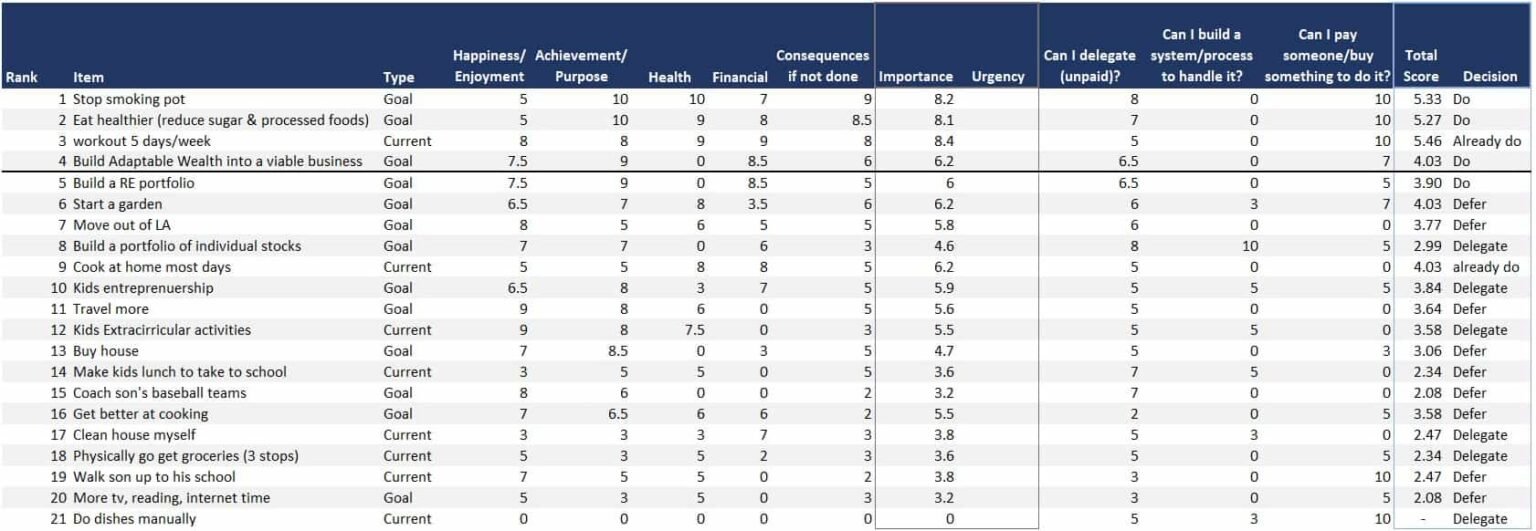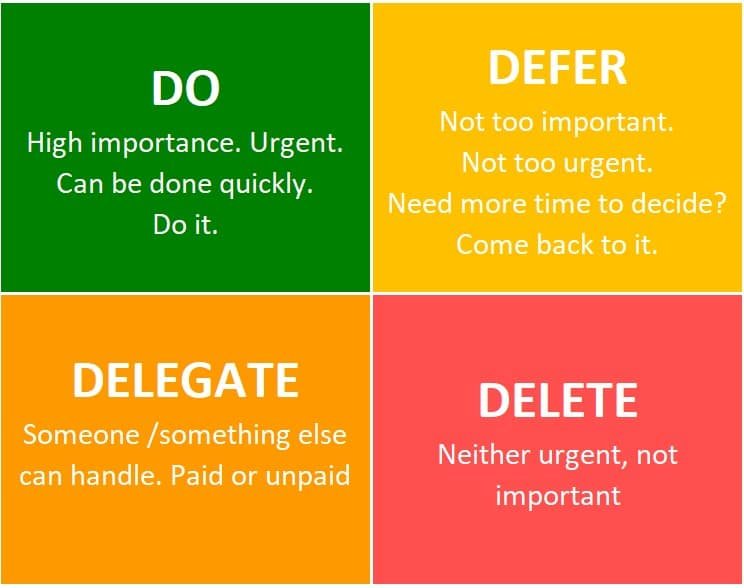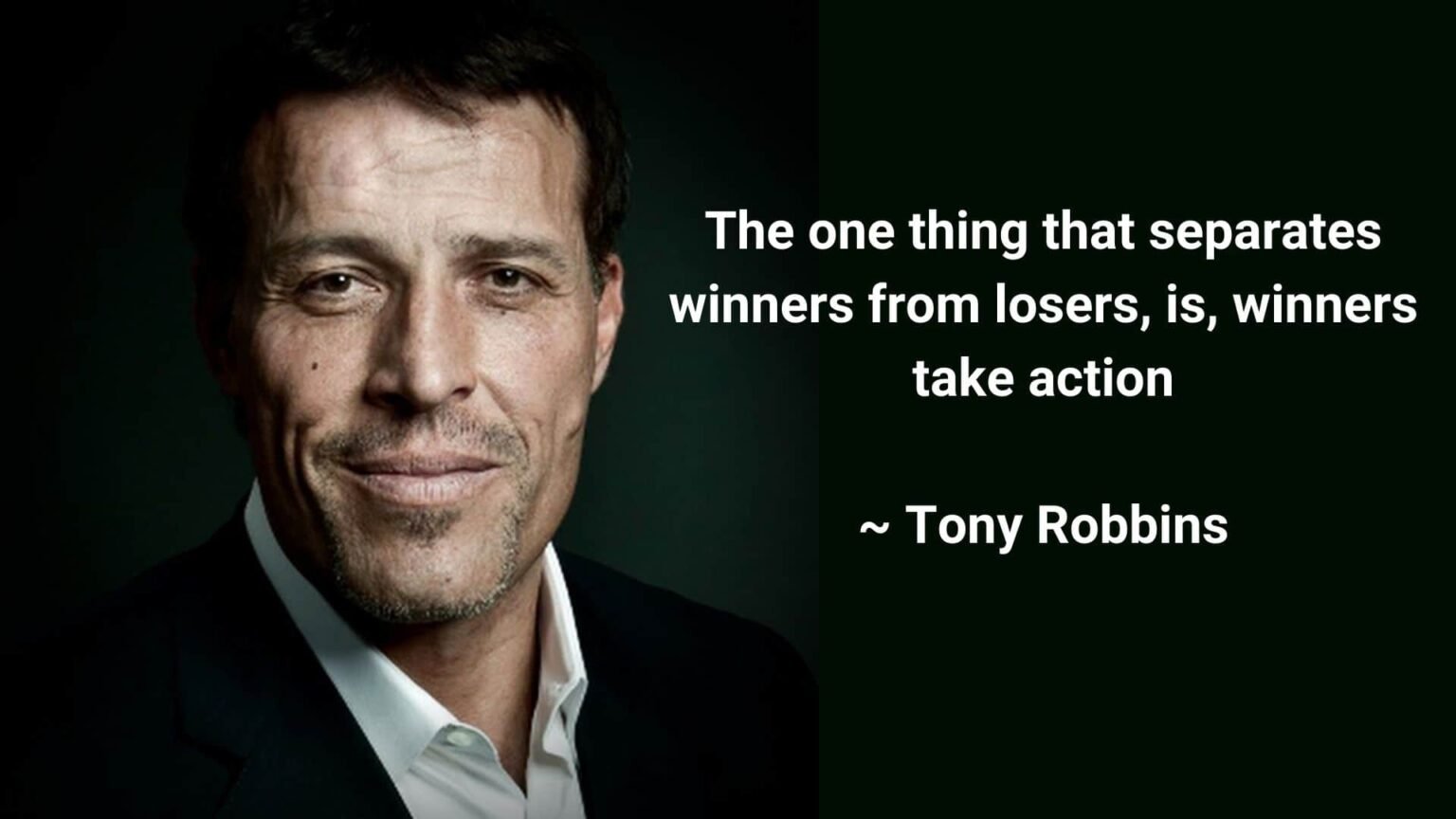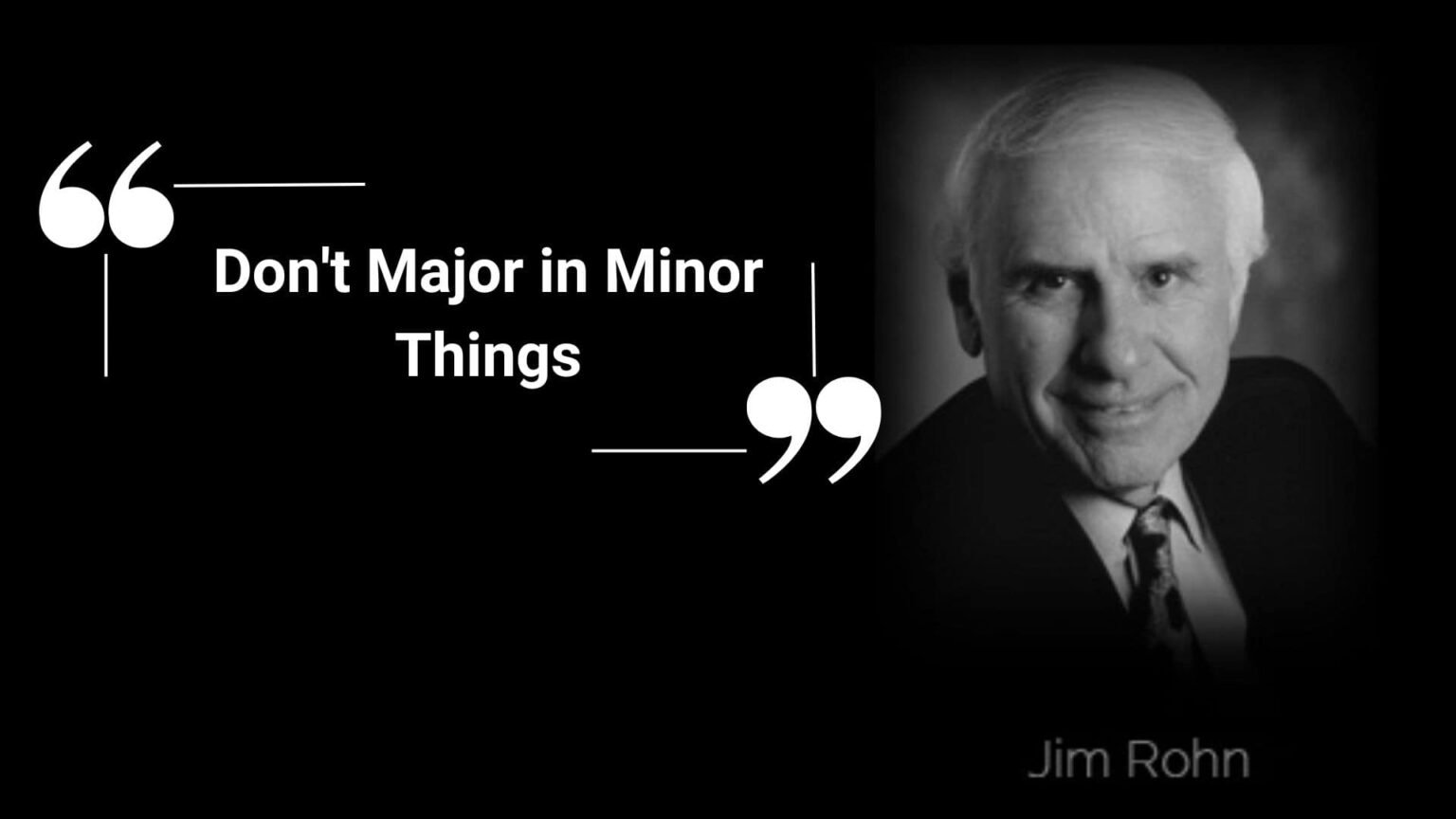
Are you constantly pulled in multiple directions? Are you always working on the little things? Do you wish you could find the time to work on the things that you want to work on?
If so, then you need a time revolution! Enough busting your ass on things that add little to your health, finances or sense of accomplishment, happiness, or fulfillment.
Enough with time management. It focuses on getting every little thing done that YOU THINK needs to be done.

IIIITTT’S TIIIIIME! To start focusing on the things that provide the most reward for your effort. And the 80/20 rule (AKA the Pareto Principle) can help you do just that.
Key Points
- The 80/20 rule (AKA Pareto Principle) states the fact that a small % of inputs/efforts (the “vital few”) tend to have an unusually large impact on outputs/rewards.
- Focus on your vital few to free up time & increase your sense of happiness, accomplishment & fulfillment.
- Your time revolution entails 3 main steps: Prioritization, Focus & Action.
- Use the 4 D’s (Do, Defer, Delegate, Delete) for more effective decision making.
- Common misconceptions about the 80/20 rule (Pareto Principle):
- It has to add up to 100%
- You can put 20% of effort & get 80% of outcomes
- You can ignore the other 80%
- You have to have tons of data to implement the rule
What is the 80/20 Rule (Pareto Principle)?
The 80/20 Rule is just another way of referring to the Pareto Principle. The Pareto Principle states that a small percentage of inputs/efforts tend to have an unusually large impact on outputs/rewards.
In other words, there is a tendency for processes, interactions, or states of being to be unbalanced.
Some examples include:
- The top 1% wealthiest individuals control 32% of the wealth in the US.[1]
- The top 25% of income earners pay 87% of taxes in the US.[2]
- Businesses usually find that one or two products or services generate an unexpectedly large portion of total sales or profits.
- For most people, a very small portion of your daily activities contribute to most of your happiness & sense of achievement on any given day.
The point is that you want to find those things that have the biggest impact. This is where you’ll be able to take advantage of the “vital few” to improve our happiness, achievement, finances (et al.) the most. You do not want to focus on the things that have a marginal impact on your life. The expenditure of time & effort on such things provides much benefit, if any. The main exceptions to this are things where
- It’s very important to you or someone we care about.
- The reward is so great that it’s worth the extra effort.
- You are working to maintain a life balance.
Misconceptions about the 80/20 Rule
First, I’d like to point out that the 80/20 part of the Pareto Principle is a misnomer. The point isn’t that exactly 20% of effort contributes exactly 80% of the reward. Adding up to 100% isn’t a requirement either. The point is that there is a large discrepancy between the effort & reward. It can be a 1/35 relationship, a 15/70 relationship, or even a 45/55 relationship.
Second, the 80/20 rule should not be interpreted as being able to put in 20% of effort to get 80% of results. You still need to put 100% effort into the things that are most important. Rather, it means that only a few things that you decide to focus on will have a significantly larger impact on your life than other things will.
Third, it does not mean you should forget about the other less impactful activities. You still need to pay attention to those provided you’ve determined that they are still necessary (can’t just eliminate them). Having said that, you should pay less attention to them. You should focus on things that are most important &/or generate the most value. A familiar saying is “work smart, not hard.”
Finally, people think that you must be precise & have a lot of data to base your decisions on. If you have data to back up your decisions then that’s great. However, data is not usually available for most real life scenarios pertaining to how you spend your time.
Define What Your time revolution means to you
All of this is very subjective & is at the sole discretion of each person. You need to be very clear as to what a time revolution means for you.
Do you mean freeing up time so that you can binge watch your favorite tv shows or chat on Facebook more often?
Do you mean freeing up time so you can have more time to do nothing?
Or are you like me & mean freeing up time so you can work on the things you really want to accomplish? Things that give me a sense of purpose, achievement & a bigger bank account.
Using the 80/20 Rule for Your Time Revolution
The time revolution entails 3 main steps: Prioritization, Focus & Action.
Prioritization
Prioritization is the Basis for Your Time Revolution
It can be time consuming but don’t take any short cuts here. If it takes you a few hours to do so, take the few hours!!!
This is the part where you determine what to do.
Start by writing down your daily activities & all your goals (what you want to do). It doesn’t matter how short term, long term, easy or tough they are.
Next, you’re going to go through & assign a value of 0-10 to the following factors with 0 being the least & 10 being the most.
- Happiness/Enjoyment
- Achievement/Purpose
- Health Benefits
- Financial Benefits
- Urgency
- Can I delegate (unpaid)?
- Can I pay someone/buy something to do it for me?
- Can I build a system/process?
Again, this is subjective so don’t get hung up on every little detail to come up with your scores.
Here is my personal list, assigned values across the dimensions listed above, & sorted from highest to lowest score. These are the things that I see as adding the most value/benefit to my life at the moment.

To get an idea of how to come up with the scores, let’s walk through how I went about scoring one of these items. Of course, this is only an example. If you have a better way for you, then use it.
- Happiness/Enjoyment = 7.5
I enjoy learning & discussing money, time & health but I’m not obsessed with it. 7.5 shows that I derive significant enjoyment from doing this but not as much as I do from traveling & seeing new places.
- Achievement/Purpose = 9
There is a fire inside me to create a viable business because of the freedom it can provide. The feeling of success & achievement I expect to get if I’m successful is very high.
- Health = 0
I don’t see any way building a business would improve my health. In fact, if I’m not careful & set boundaries, it could do the opposite.
- Financial = 8.5
There is the potential to more than double my current earnings with a viable business.
- Consequence if not done = 6
I’m doing well as is. If I don’t do this, I’ll be just fine so it’s not an 8, 9 or 10. However, based off potential technological disruptions of the labor market & increasingly authoritarian actions against employees by the government, I believe I will be better off having a viable business to fall back on if necessary.
- Urgency = 6
The threat mentioned above is not imminent so I don’t need to have it fund my needs in the next year or so. I expect to have 3-5 years to get it to that point.
- Can I delegate (unpaid)? = 0
I don’t know anyone who is willing to do the work for me without being paid. If you do, please, have them reach out to me.
- Can I pay someone/buy something to do it? = 7
I can’t pay someone to do everything for me. But I certainly can pay for people to help build out my website, do video editing, provide recommendations as to how I should go about building the business etc. Having said that, I’ll still have to put in a lot of my own time & energy.
- Can I build systems/ processes to handle it? = 7
I absolutely can & will. However, it will take time. In the immediate future, it’s going to take quite a bit of my time, focus & energy.
Focus
Once you have your prioritized list, it’s time to pick the ones you’re going to focus on.
To improve your chances of success, you need to put all the other competing goals on the back burner. Dedicate a large majority of your time & energy into just those top 1-2 goals.
Many people think that they can multitask effectively & handle 5, 6 or 7 goals at once. Study[3] after study[4] after study[5] have shown this to be false. As you accomplish your top goals, the other ones will move up & you will then have time to focus on them.
No, this doesn’t mean that you don’t have to do the things that simply have to be done. You still have to pick your kids up from school, bathe, & do laundry. Nor does it mean that you should neglect your relationships, yourself, or never take some time to sit on your ass. Balance is important. Even if it means doing things that don’t contribute to your top goals. Getting too far out of balance & focusing on anything 100% of the time will only make things worse, not better.
The 1st step in the focus phase of this journey is to decide how we’re going to proceed with each item on our list. I personally like the 4 D’s method of decision making. Do, Delegate, Defer, Delete.
There are tons of different methods you can use to decide how you’re going to handle a task or goal. I think the following article[6] details several options very well.

Notice that we have a list of 21 items. We need to choose how many we’re going to focus on. Are we going to focus only on the top 2? (10/90 approach) Top 3? (14/86 approach) Top 4? (20/80 approach)
Whatever your cutoff is, the items that fall in our 80/20 rule (Pareto Principle) threshold need to be categorized as a do, defer or delegate. Almost never should it be a delete. It’s at the top of the list because it’s important to you & it’s at least somewhat urgent. It makes no sense to delete something like that.
On the other hand, the items that fall below the our 80/20 rule (Pareto Principle) threshold should almost always be categorized as a defer, delegate, or delete. We’ve already established our “vital few” priorities. To stay true to our time revolution, we must focus nearly all our free time on those items & do something else with all the others.
Here are some questions you should ask yourself to determine in which bucket you’re going to place each item.
- Is it worth doing (Important/Urgent)?
- Are you already doing it?
- Can you delegate it to someone else for free? (Kids, spouse, other family member etc.)
- Can you pay someone or buy something to do it for you?
- How are you going to pay for it?
- Can you set up a system/process to handle it for you?
- How are you going to pay for it? (time & money)
Let’s go through some of the items on my list to see my thought process when deciding how to decision each item.
- Delegate to someone for free? = 0
Having someone else eat healthier will not help me eat healthier. This is something I’m going to have to do myself.
- Pay someone or buy something to do it for me? = 5
I can’t hire someone to eat healthier for me. I can hire a health coach or purchase an app to help me plan out what I should eat & help me deal with junk food cravings as they come up.
- How will I pay for it? = 6.5
I would have to reduce the amount I save each month, cut expenses or find a way to make more money to pay for it. Therefore, it can’t be an 8, 9 or 10. However, It’s the 2nd highest goal on my list. If necessary, I will find a way to afford it.
- Can I build a system/process to handle it for me? = 8.5
I can absolutely plan what I’m going to eat each day & buy those items when I get groceries. I can also devise a way to handle sugar cravings when they come up. It’s not a 10 because you can’t automate a sugar craving away. It will take some will power.
- Decision = Do
This is important to me. At my age it also comes with a fair amount of urgency so it is something that I want to do. I also expect there to be a financial benefit in terms of lower health care costs later in life. I will start by devising a plan myself. If necessary, I will pivot to a health coach or app to assist me should I not be able to accomplish this goal over the next 6-12 months.
I already dedicate 60-90 minutes a day during lunch to lifting weights & going for a walk or run. I will continue doing this due to the significant importance to my health & the feeling of enjoyment I get from doing it. Not to mention the expected financial benefits from reduced health care costs as I get older.
I’ve already built this habit so there is no need to delegate it.
- Can I delegate it for free? = 3
My kids would love to help maintain a garden with me. Unfortunately, they won’t be able to do everything themselves right away. Therefore, it will take a fair amount of my time to get it going & to maintain it. As my kids get older, they will eventually be able to handle everything themselves. However, will they still want to as they get older?
- Can I pay someone or buy something to do it for me? = 7
I can absolutely pay a gardener to do everything for me. I would have to run a cost/benefit analysis to determine if it’s worth it or not. One problem is that I live in an apartment without enough light for almost any plant to grow & thrive. Therefore, I’d have to go with an indoor grow approach. Because of this, I’d have to let someone into my apartment a couple times a week to do what they need to do. Not something I’m keen on doing at the moment, but it is a possibility.
- Can I afford it? = 9
It’s at the top of my list of goals so I’d figure out a way to afford it whether it’s by saving less, cutting expenses or generating more income. I’d have to run a cost benefit analysis to make sure that the costs don’t significantly outweigh the benefits as the ongoing electricity costs will be the primary obstacle.
- Can I build a process/system to handle it? = 9
Absolutely. The initial set up will take a little time but I can automate the watering & lighting. Other than feeding & general care, it could be 85-90% automated.
- Decision >= Defer
It’s quite apparent that there are immense benefits here primarily in the areas of achievement & health as well as the fact that the process can be 85%+ automated. The only obstacle will be the energy costs. I’ll need to estimate that to make sure that the increased electricity costs will not be so high that it kills this project. The only reason it is a defer is that it falls below the 80/20 rule (Pareto Principle) threshold for me at the moment.
One last thing on the topic of focus. You may notice that I’m choosing to focus on my top 5 goals out of 21 items on my list. That means I’m choosing a 24/76 approach to my time revolution.
However, I can argue that I’m actually choosing to focus on only 3 of my goals. In other words, I’m choosing a 20/80 approach. Hear me out.
Quitting pot will not take any meaningful amount of time to accomplish. If I get an urge, I’ve found that exercising for 15 minutes, meditating, or listening to a motivational speech puts me in a different frame of mind & really helps the urge pass. Additionally, I don’t get the urge that frequently. This means that my time commitment to this goal will be minimal. As a result, I’m not counting it as a full-fledged goal that I’ll have to focus on like building a viable business or real estate portfolio.
Similarly for the healthy eating. All I have to do is make sure I have plenty of lean meats, fruits & vegetables in my fridge at all times. When the sugar urge does come up, I can have a piece of fruit. Sure, there will be a decent amount of up front time commitment to plan what I want to stock my fridge with. But once I settle into a routine, the time commitment will be minimal.
Therefore, I’m looking at quitting pot & eating healthily as one goal. This means that I’m actually focusing on only 4 goals out of a list of 20….an 20/80 rule (Pareto Principle) approach.
Action
There’s a term for going through a bunch of planning, getting psyched up to achieve a goal & then telling yourself that you’ll start tomorrow or next week…..it’s called mental masturbation. And it gets you nowhere.
If you’re not going to immediately follow through on all the planning & reflecting that you’ve done, you might as well have gone for a hike, taken a nap, or worked on outstanding deliverables for you day job. You would have been better off because you would have actually accomplished something.
You’re reading this article & have gotten this far for a reason. Now go take action! Otherwise, you’re going to find your self in the exact same place that you find yourself now.

I know it can be daunting to figure out how you are going to achieve the goals that you laid out for yourself. My preferred method is to start with YouTube & google.
For example, let’s say I want to come up with a plan for how I’m going to build a real estate portfolio.
Go onto YouTube or google & search “how to find a location for my first rental property.” Watch several videos, read several articles & take some notes. Make a list of all the things that you think you need to know or do to find the right market for you.
And what do you think you do when you have a list of 10-15 things to find the right market? You follow the 80/20 rule (Pareto Principle) & simply repeat the steps: prioritization, focus & action.
Rank your list based on what you think will make the most difference in achieving your goal. If you have concrete data to back up your rankings, even better. You may find that going onto Redfin or Zillow & looking through their metrics can help you identify markets of potential interest. Next, contact an agent or property manager in that market. They know the markets they serve & most will be happy to share their wisdom. This will get you 75-80% of the way to really understanding the markets you identified.
Remember, the name of the game is to find the things that will get you MOST of what you need/want for the same amount of effort or time. Once you make that “80%” progress you’ll have a much better idea of what you need to do to lock in your first rental property. Then you can repeat the process to refine & perfect.
Read Your Goals Daily
There’s a few things I want to point out as we conclude this article.
First, you should read your goals every day while you’re having your water, tea, coffee or whatever you do first thing in the morning. Studies[7] have shown this to improve your ability & determination to accomplish your goals.
Second, your list of goals is a living document that will change over time. Why? Because you’ll change over time. Your skills will improve. You’ll have a better sense of what has meaning to you. You’ll find someone to spend your life with. You may even have children. In other words, your priorities will shift. There is also the tendency for life creep. This is the tendency for the weeds of life (all the little things) to slowly creep back into your list of things that “must be done.”
Because of this, you need to come back to your list & revise every 6 months to 1 year at minimum. This helps ensure that you maintain control of your life & do what is most important to you. Like my favorite motivational speaker once said

In conclusion, If we truly want to be happier, accomplish more, free up time, etc., we must increase the amount of time we spend on things that we enjoy the most & are important to us. If you’re like me, I’m sure you have realized that you are much more productive & happier when you’re doing things you truly enjoy.
[1] "Distribution of Net Wealth in the United States from Q1 1990 to Q3 2022" . https://www.statista.com/statistics/299460/distribution-of-wealth-in-the-united-states/ .Accessed 3/5/2023
[2] "Summary of Latest Federal Income Tax Data , 2021 Update". By Erika York. https://taxfoundation.org/federal-income-tax-data-2021/Accessed 3/5/2023
[3] "A Plan for Managing (Contant) Interruptions at Work" by Sophie Leroy & Theresa M. Glomb. https://hbr.org/2020/06/a-plan-for-managing-constant-interruptions-at-work Accessed 3/5/2023
[4] "Why Multitasking is Unproductive and What to do Instead". By Ashley Janssen. https://ashleyjanssen.com/why-multitasking-is-unproductive-and-what-to-do-instead/ Accessed 3/5/2023
[5]"Make it Our Time: In Class Multitaskers Have Lower Academic Performance. By Saraswathi Bellur, Christine L. Nowak & Kyle S. Hull. https://www.sciencedirect.com/science/article/abs/pii/S0747563215004677 .Accessed 3/5/2023
[6] "9 Tips on How to Prioritize Tasks Effectively At Work". By Jitesh Patil. https://toggl.com/blog/how-to-prioritize-tasks . Accessed 3/5/2023
[7] "5 Powerful Reasons to Write and Read Your Goals". By Maxim Dsouza. https://productiveclub.com/write-read-your-goals/ Accessed 3/5/2023.
Get Our Latest Delivered To Your Inbox
You will receive 1-2 emails per month and you can unsubscribe at anytime













